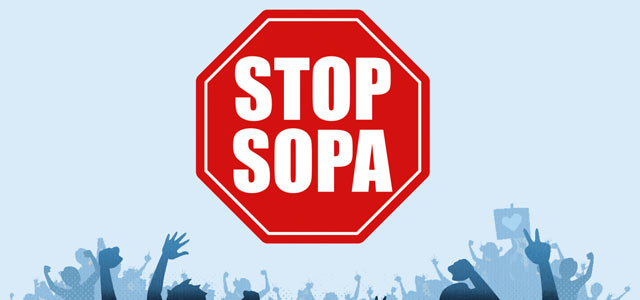The Choice hopes that you did your homework early, lest you found yourself briefly lost in a world without Wikipedia and a host of other websites that went offline Wednesday in protest against SOPA and PIPA, two bills that are currently being debated in the United States.
SOPA, or the Stop Online Piracy Act and PIPA, the Protect IP Act are proposed laws with the goal of giving the US government and copyright holders the legal means to curb access to websites that enable piracy of intellectual property; usually of things like music, games or films.
The Motion Picture Association of America, the major film studios in Hollywood along with television networks and major book publishers have all said that without the legislation at least 2.2 million industry jobs would be at risk.
In theory the two acts have very valid purposes, but they’ve met huge criticism from the likes of Google, Facebook, Twitter, WordPress and Wikipedia who say they are draconian and harmful to free speech.
US website Politico estimated that over 7,000 websites were involved in the protest by early Wednesday, with Google placing a black box over their logo, WordPress leaving a message claiming that SOPA “breaks the internet” and perhaps most notably Wikipedia who blacked out the English language version of their website for 24 hours.
In reality, the move by Wikipedia was very simple to bypass, but it raised huge awareness of the fight, with terms like “#Wikipedia”, “Imagine A World Without Free Knowledge” and “Esc” (a reference to one of the solutions to get around the Wikipedia black-out by tapping escape before the page fully loaded) trending worldwide on Twitter.
Currently being considered by the House of Representatives and the Senate, the acts propose that anyone found guilty of streaming copyrighted content without permission 10 or more times within a limited period would face up to five years in jail.
The US government and the copyright holders would also have the right to seek court orders mandating that any website accused of even “facilitating” piracy could be taken offline. In other words if a link to pirated material was posted by a reader in the comments section an article on The Choice, then this site could be taken offline.
Apart from lengthy jail sentences and taking down websites, the bills initially demanded that Internet Service Providers block users from being able to access sites suspected of illegal activity using the same Domain Name System blocking that has been seen in countries like Iran and China.
While the notion of going to such extremes was eventually taken out of the draft proposals, PIPA still has loopholes that critics claim could create a conflict of interest and encourage firms to block access to competitors’ sites.
With major American media companies backing the legislation, there’s a chance it could go ahead, despite raising concerns from the White House who, last weekend, pledged to work with Congress to battle piracy yet defending free expression, privacy and innovation in the internet. Barack Obama’s administration even signalled that it might use its ability to veto if it felt it necessary.

